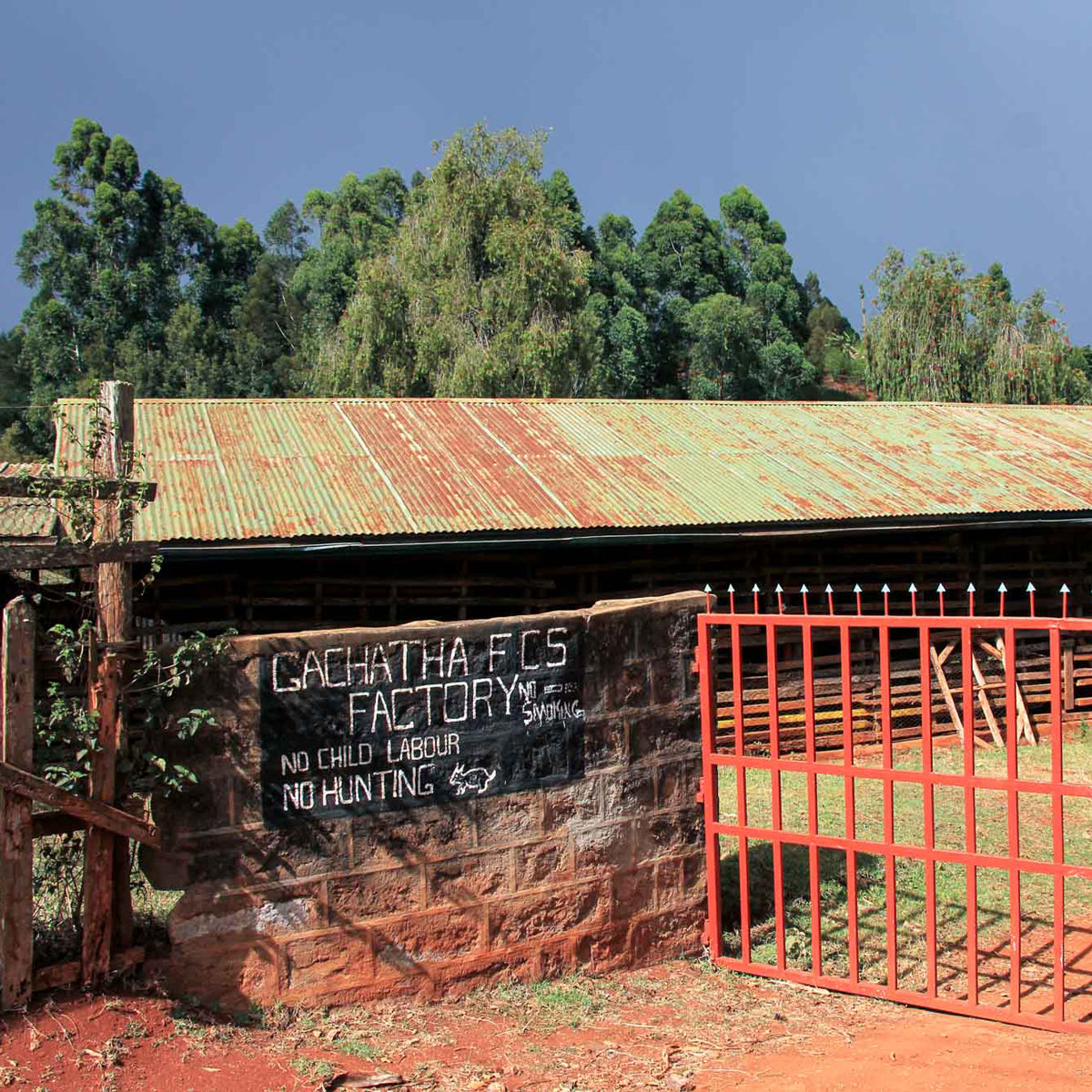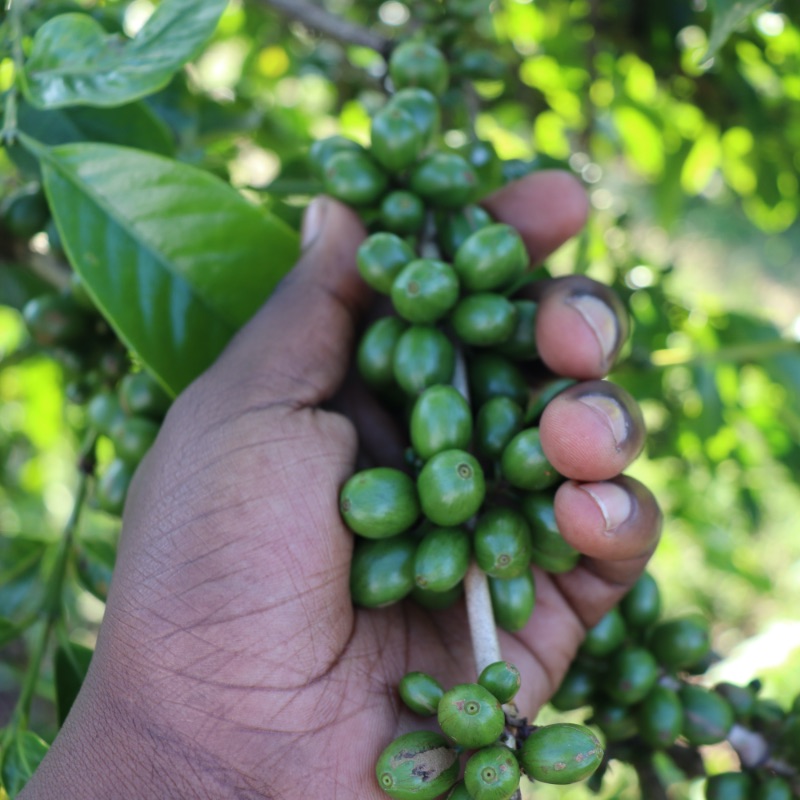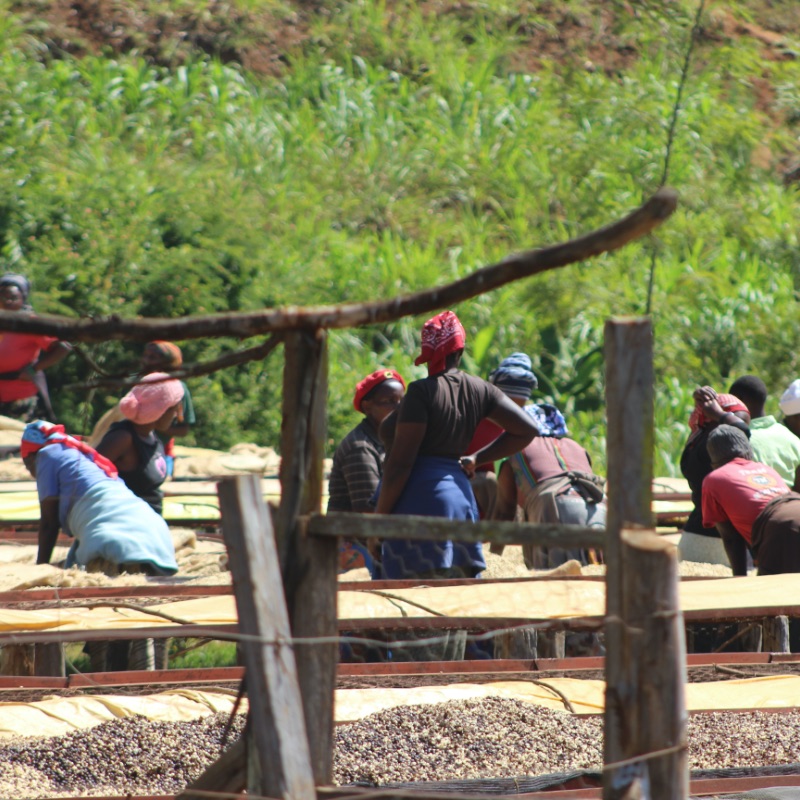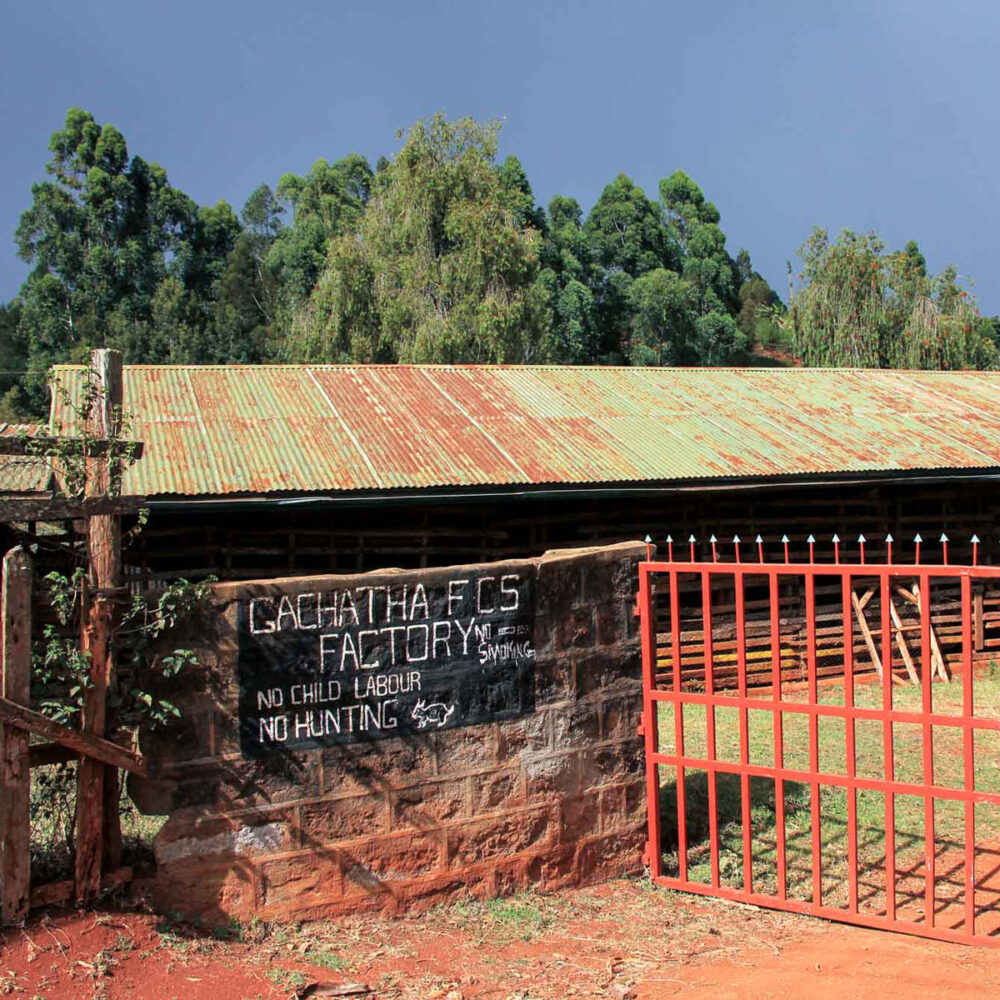Gachatha AA Filter, KENYA
Kenya
₹2,200
SWEET FLORAL/ BLACK CURRANTS / SYRUPY CLEAN FINISH
About This Coffee
| Varietal: | SL 28, 34, Ruiru & Baitan |
| Processing: | Double Washed |
| Country: | Kenya |
| Region: | Nyeri, Central Province |
| Altitude: | 5900- 6800 ft |
| Farmer: | Several small holder farmers |
| Roast: | Filter |
| Weight: | 250g |
One of our most loved Kenyan, Gachatha AA is back.
Loaded with intense fruitiness and vibrant acidity, Gachatha is a delight in cup. You shall enjoy floral and sweet aromatics with notes of black currants, ripe fruits and cane juice.
So, for all the happy reminiscences, from Kenya we have had, Konyu, Kiambara, Gachatha, Karatina and again Gachatha :).
Gachatha has been so consistently good that we shall try and make it a permanent feature, but then every good roaster across the continents digs for this one, let’s hope we stay lucky.
These are couple of batches of trial roasts and already tasting so good. Shall come up with final roast soon after few more tweaks to perfect it.
About The Farm
Gachatha Coffee Factory rests on a 392-acre piece of land between the villages of Muthuaini, Thiriku, Gachenge, and Kianjau. It started in 1963 to form the Gachatha Farmers’ Co-operative Society Ltd. Co-op. Its current stands at 1,542.
The area surrounding Gachatha area is densely populated, so every effort is made to minimize impact. The factory treats all water in soak pits to ensure no contaminates run into the local waterways, which are a source for drinking water. The community also places great importance on protecting the indigenous trees that remain in the area, so that the local bird life can be sustained.
LOCATION
Gachatha factory was formed in 1963 and it is situated in the slopes of the Aberdare mountain range, Karundu location, Nyeri County about 150km north of Kenya’s capital Nairobi.
SOILS AND CLIMATE
Gachatha Coffee Factory experiences moderate bimodal rainfall and temperatures here range from 13 to 24C year round. The main varieties of coffee grown here is SL28, Batian, SL34 and Ruiru 11. The region has deep, fertile well drained red volcanic soils which are ideal for coffee production.
PROCESSING
After picking, ripe cherry is brought to the factory by smallholder farmers, before it undergoes processing to remove the skin and pulp – known as the wet processing method. The nearest water source and the factory are dependent on electrical pumps to move water to reservoir tanks before using it for processing.
Water is also recirculated for conservation. The factory is using a disc pulper with three sets of discs to remove the skin and fruit from the inner parchment layer that is protecting the green coffee bean.
After pulping, the coffee is fermented overnight to break down the sugars, before it is cleaned, soaked and spread out on raised drying tables. Time on the drying tables depends on climate, ambient temperature and total production volumes currently undergoing processing.
MILLING PROCESS
Hulling machinery removes the parchment layer (endocarp) from wet processed coffee. Hulling dry processed coffee refers to removing the entire dried husk — the exocarp, mesocarp and endocarp — of the dried cherries.
Polishing is an optional process where any silver skin that remains on the beans after hulling is removed by machine. While polished beans are considered superior to unpolished ones, in reality, there is little difference between the two.
Grading and Sorting is done by size and weight, and beans are also reviewed for color flaws or other imperfections.
Beans are sized by being passed through a series of screens. They are also sorted pneumatically by using an air jet to separate heavy from light beans.
Finally, defective beans are removed either by hand or by machinery. Beans that are unsatisfactory due to deficiencies (unacceptable size or color, over-fermented beans, insect-damaged, unhulled) are removed.
SUSTAINABLE FARMING
In line with the rising awareness on the need to conserve the environment, the factory has dug the waste water soak pits away from the water source where the waste water is allowed to soak in back to the soil. Currently the factory does not engage in waste water treatment. Additionally the society encourages its members to plant trees on their farms.
MANAGEMENT
Gachatha Coffee factory is run by a factory manager who oversees all activities within the factory. Together with other staff members they carry out duties such as weighing coffee, selection and grading of coffee, paying farmers and addressing farmers’ complaints.





